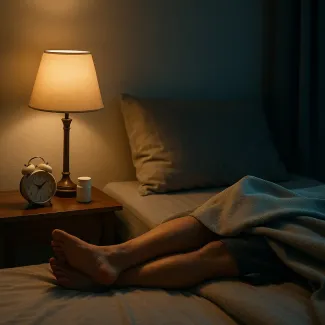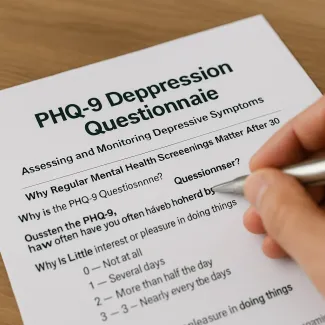
Adapting Your Sleep Patterns After Turning 30: What You Need to Know
Understanding how age impacts rest and how to sleep better in your 30s and beyond
How aging begins to affect sleep quality after 30
In your 30s, you may notice that falling asleep is harder, or that you wake up more often during the night. These aren’t coincidences. As we age, our circadian rhythms—the internal clock regulating sleep-wake cycles—start to shift, and hormonal changes influence how well we rest. This phase of life often comes with added stress, career responsibilities, and perhaps parenthood, all of which take a toll on sleep duration and quality.
Moreover, the body starts to produce less melatonin, the hormone that promotes sleep, especially if you're exposed to screen time late at night or inconsistent sleep patterns. This decline affects your ability to fall into deep, restorative sleep, which is essential for mental clarity, emotional balance, and physical health.
Signs your sleep is suffering after 30
It's not just about feeling tired. Poor sleep in your 30s can manifest through:
- Mood swings and irritability
- Weakened immune function
- Frequent colds or infections
- Brain fog and difficulty focusing
- Increased appetite, often leading to weight gain
If you're experiencing any of these symptoms, it's time to pay closer attention to your nightly routine.
Common lifestyle factors disrupting sleep in your 30s
Stress and anxiety accumulation
With increased career responsibilities, financial planning, and sometimes parenting, stress becomes a primary sleep disruptor. Cortisol, the stress hormone, can remain elevated in the evening, delaying sleep onset and reducing REM sleep—the most restorative sleep phase.
Increased screen time and blue light exposure
Using phones, tablets, and laptops late into the night inhibits melatonin production. This makes it harder to fall asleep and affects sleep architecture, particularly in the early stages of the night.
Inconsistent routines
Social events, long working hours, or irregular gym schedules can lead to a disrupted sleep-wake cycle. The body thrives on routine, and lack of one confuses your biological clock.
Diet and caffeine use
Coffee at 4 PM might feel harmless, but caffeine stays in your system for hours. Similarly, heavy evening meals, especially those high in sugar or processed carbohydrates, can interfere with falling asleep.
Hormonal changes and their impact on sleep
Decline in melatonin and growth hormone
After 30, your body naturally produces less melatonin, which impacts your sleep latency and sleep quality. Additionally, growth hormone—important for cellular repair and muscle regeneration—is secreted less efficiently, especially with disrupted sleep.
Female hormone fluctuations
For women, perimenopause can start in the late 30s or early 40s, bringing night sweats, hot flashes, and restlessness. These physiological changes can make uninterrupted sleep a challenge.
Testosterone and male sleep patterns
Men may also experience a gradual decline in testosterone, which has been linked to reduced deep sleep, more awakenings, and sleep apnea symptoms.
Creating a consistent bedtime routine that supports sleep
One of the best ways to counteract age-related sleep changes is by designing a bedtime ritual. This includes:
- Going to bed and waking up at the same time daily, even on weekends
- Reducing screen time at least one hour before bed
- Taking a warm bath or shower to relax muscles and lower body temperature
- Reading a book or listening to calming music
- Practicing deep breathing or mindfulness meditation
These steps train your body to recognize cues for sleep and improve sleep onset latency.
Natural supplements and remedies to support better sleep
Several natural sleep aids have shown promising results in improving sleep for people over 30:
- Magnesium: Helps relax muscles and nerves
- Valerian root: A herbal sedative that improves sleep quality
- Ashwagandha: Reduces cortisol levels and promotes calmness
- Melatonin: Can help reset your circadian rhythm, especially for shift workers or those with jet lag
Always consult with a healthcare provider before starting any supplement, especially if you’re already taking medications.
How nutrition plays a key role in sleep quality
Your diet is directly linked to how well you sleep. Include foods that are rich in:
- Tryptophan (found in turkey, bananas, oats): Helps produce serotonin and melatonin
- Magnesium (almonds, dark leafy greens): Supports muscle relaxation
- Calcium (dairy, tofu, kale): Helps the brain use tryptophan effectively
Avoid alcohol, spicy foods, and heavy meals at night. Although alcohol might help you fall asleep faster, it significantly disrupts REM sleep and can lead to early awakenings.
The relationship between exercise and sleep after 30
Engaging in regular physical activity enhances sleep quality. Exercise helps regulate your circadian rhythm, lowers stress, and increases sleep pressure (the body’s need for sleep).
- Morning or early afternoon workouts are most beneficial
- Avoid vigorous evening workouts, which might raise adrenaline and body temperature too close to bedtime
- Incorporate yoga or stretching routines in the evening for gentle wind-down
Managing screen time to support better sleep
Reducing blue light exposure is crucial. Try these steps:
- Use blue light filter apps on your devices
- Switch to amber-toned lightbulbs in the evening
- Create a no-screen zone in the bedroom
- Replace evening scrolling with journaling or a physical book
Blue light not only interferes with melatonin but also stimulates the brain, making it harder to relax.
The importance of the bedroom environment
Your sleeping space plays a major role in sleep quality. Optimize your bedroom for sleep by ensuring:
- Total darkness using blackout curtains or a sleep mask
- Cool temperature, ideally between 16–19°C
- Minimal noise, or using white noise machines
- Comfortable mattress and breathable bedding
A cluttered or stimulating environment can signal your brain to stay alert instead of relaxing.
Technology that supports healthier sleep
While screens may hurt sleep, some devices can enhance it:
- Smart alarms that wake you during light sleep phases
- Wearables like fitness trackers that monitor sleep cycles
- Sound machines with nature or ambient sounds
- Smart bulbs that dim gradually to mimic sunset
These tools help reinforce healthy circadian cues and give you better insight into your sleep patterns.
When to seek professional help for sleep issues
If you’ve tried lifestyle changes and still struggle with chronic insomnia, excessive daytime fatigue, or snoring, it’s worth consulting a sleep specialist. Conditions like:
- Sleep apnea
- Restless legs syndrome
- Chronic stress disorders
can all severely affect your health if left untreated. Professional interventions might include CBT-i (Cognitive Behavioral Therapy for Insomnia) or sleep studies.
How better sleep improves health after 30
Prioritizing sleep in your 30s brings tangible benefits:
- Sharper focus and productivity at work
- Better mood and reduced risk of depression
- Stronger immune system
- Balanced weight and fewer sugar cravings
- Lower blood pressure and heart health protection
Good sleep is a cornerstone of longevity and vitality.
Actionable checklist to improve your sleep starting tonight
- Set a consistent sleep schedule
- Avoid screens an hour before bed
- Eat light, balanced dinners
- Try magnesium or a sleep-inducing tea
- Make your room dark and cool
- Keep a sleep journal to track progress
- Add calming rituals like reading or meditating
Taking small, daily actions leads to long-term improvements in your overall sleep health.
Embrace sleep as a pillar of wellness
Sleep is not a luxury—it's a non-negotiable part of health. In your 30s, the demands on your body and mind increase, making quality sleep more critical than ever. By understanding the changes that occur and making smart lifestyle choices, you can reclaim deep, restorative sleep and wake up each day feeling more energetic, focused, and balanced.





